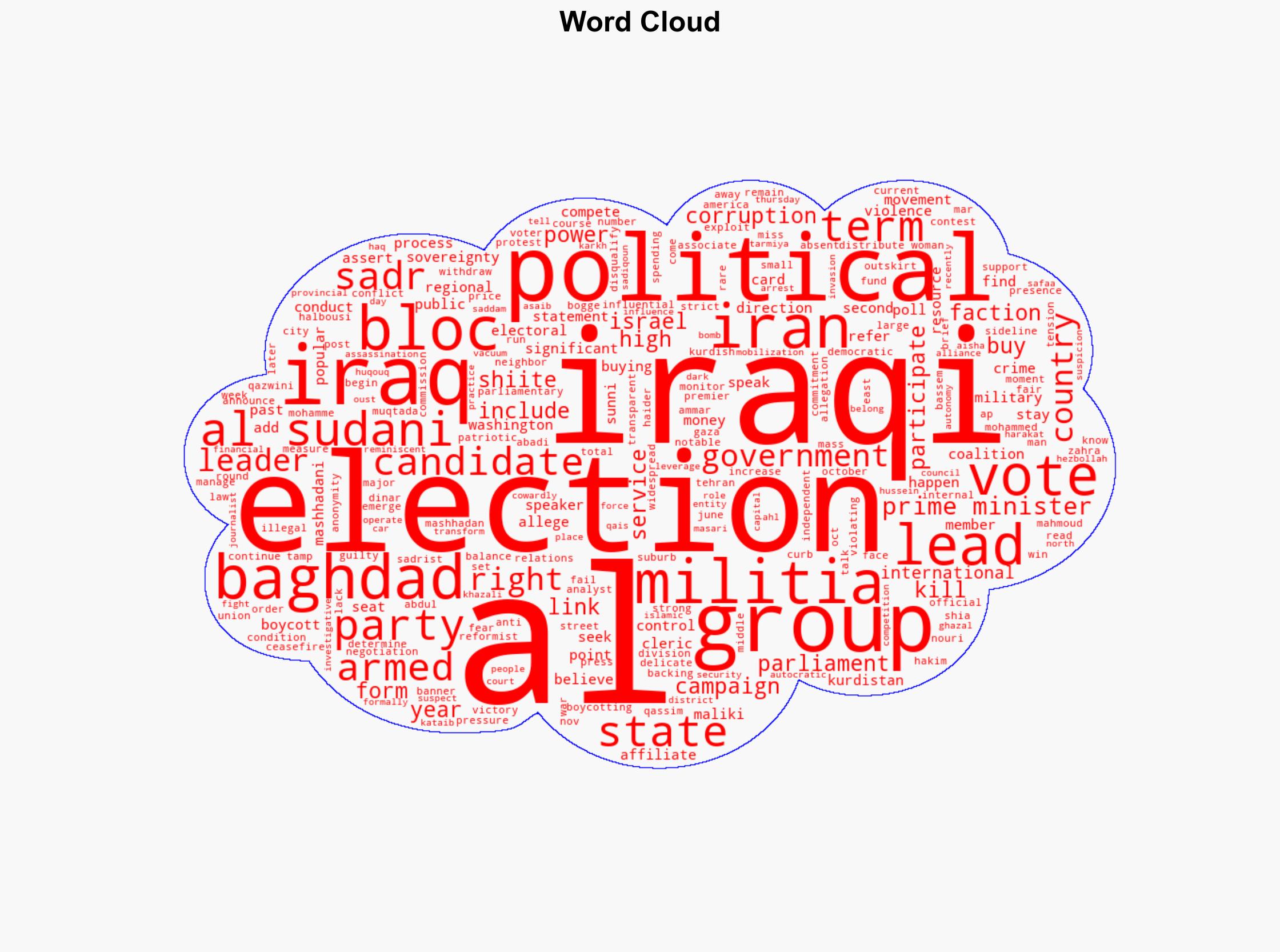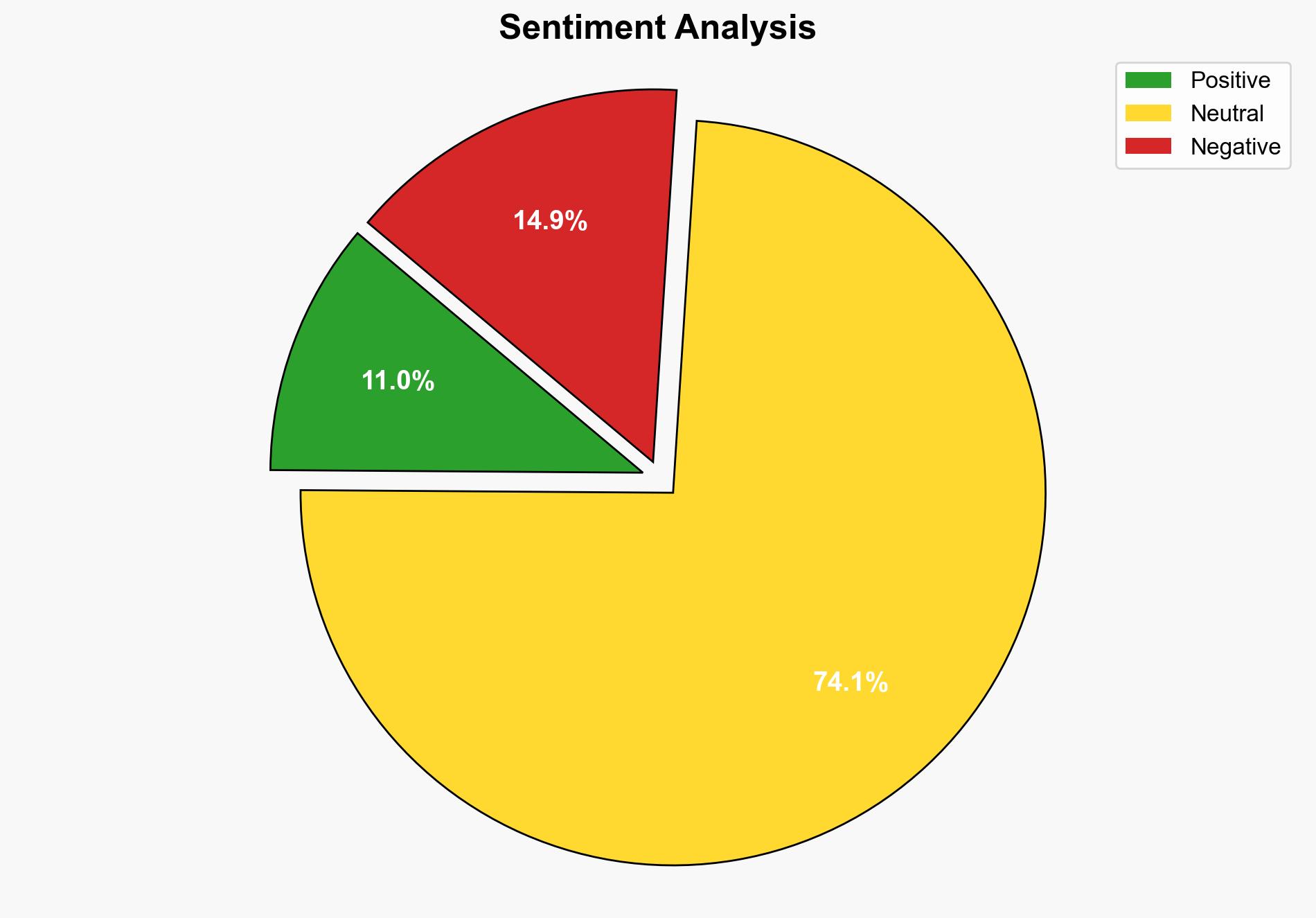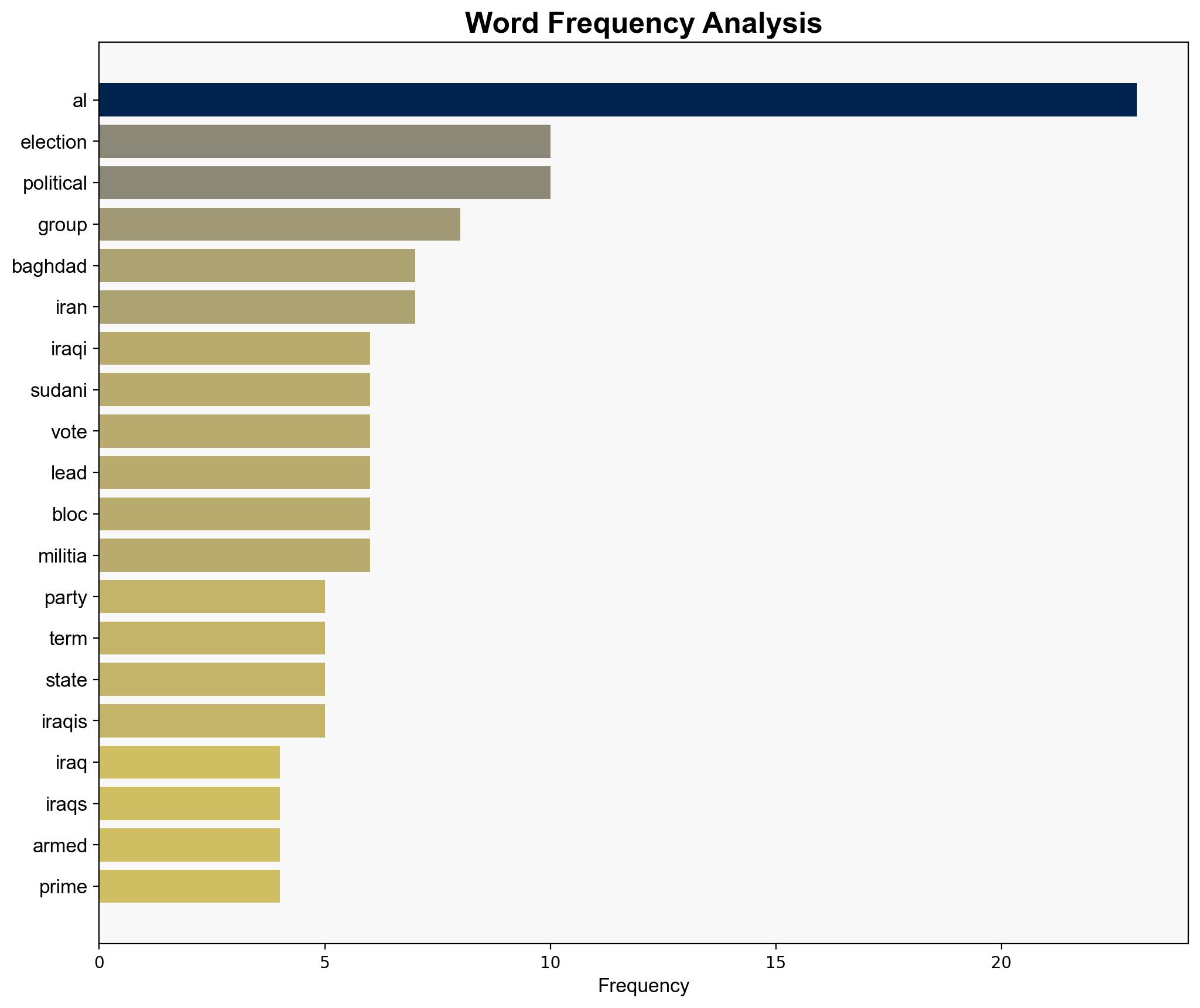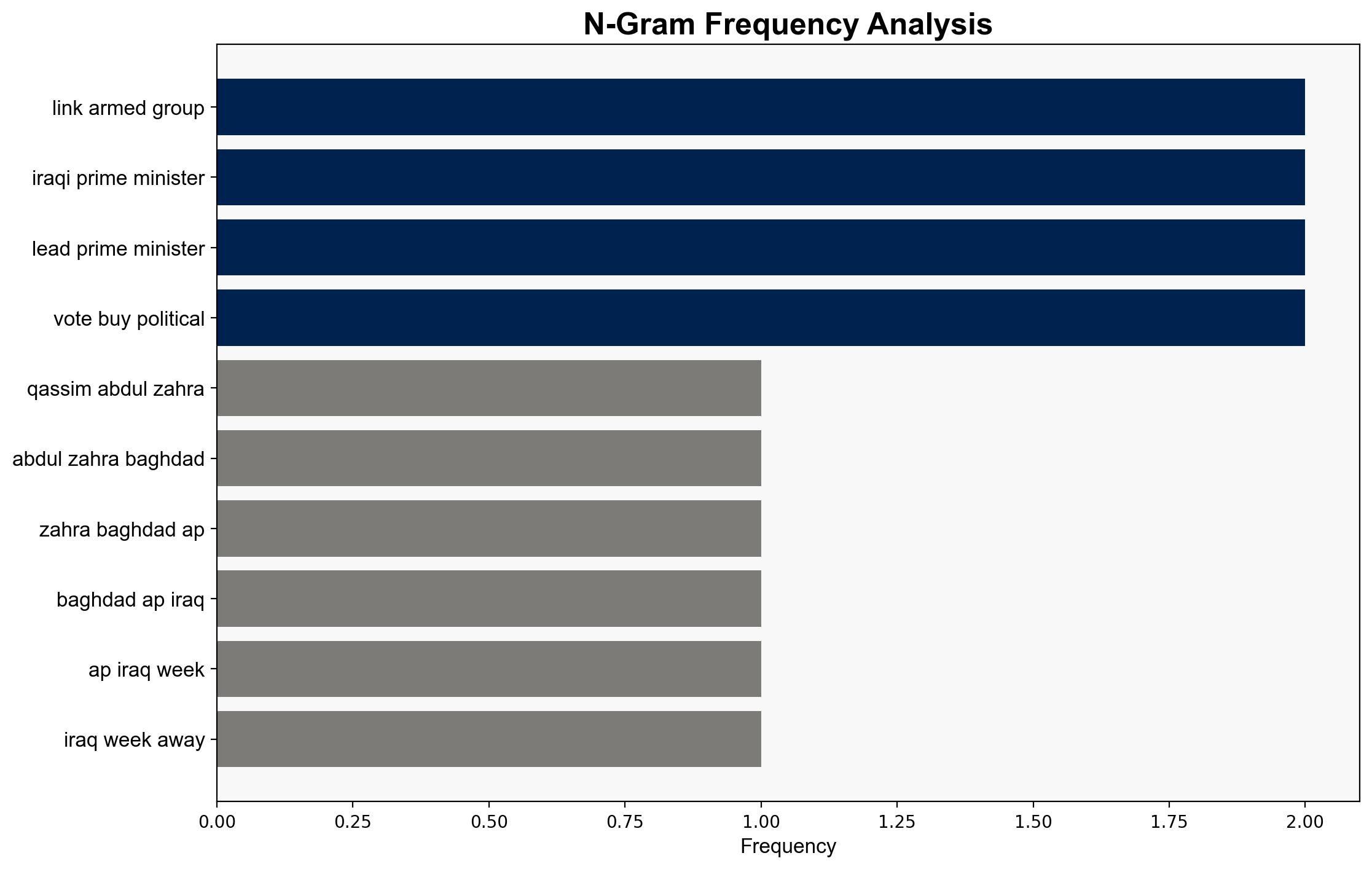Iraq faces elections at a delicate moment in the Middle East – Boston Herald
Published on: 2025-10-24
Intelligence Report: Iraq faces elections at a delicate moment in the Middle East – Boston Herald
1. BLUF (Bottom Line Up Front)
The upcoming Iraqi elections present a critical juncture with potential regional implications. The most supported hypothesis suggests that Iran-linked groups will consolidate power, potentially increasing Tehran’s influence in Iraq. Confidence level: Moderate. Recommended action: Monitor election outcomes closely and prepare for potential shifts in regional alliances and power dynamics.
2. Competing Hypotheses
Hypothesis 1: Iran-linked groups will gain significant influence in the Iraqi elections, leading to increased Iranian sway over Iraq’s political landscape. This is supported by the backing of Prime Minister Mohammed Shia al-Sudani by Iran-linked parties and the significant presence of Iran-backed militias.
Hypothesis 2: The elections will result in a fragmented parliament with no single faction gaining dominance, leading to prolonged political instability. This is supported by the absence of the Sadrist movement and the presence of multiple competing factions, including Shiite, Sunni, and Kurdish parties.
3. Key Assumptions and Red Flags
– Assumptions: Both hypotheses assume that voter behavior will align with historical patterns of sectarian and political loyalty. There is an assumption that Iran-linked groups can effectively mobilize their base despite allegations of corruption.
– Red Flags: Reports of vote-buying and political violence may indicate attempts to manipulate the election outcome. The absence of the Sadrist movement could skew traditional voting patterns.
– Blind Spots: The impact of external pressures, such as U.S. influence or regional conflicts, on voter turnout and election results is not fully accounted for.
4. Implications and Strategic Risks
– Regional Stability: An increase in Iranian influence could exacerbate tensions with neighboring countries and the U.S., potentially destabilizing the region.
– Internal Security: A fragmented parliament may lead to governance challenges, increasing the risk of civil unrest and empowering non-state actors.
– Economic Impact: Political instability could deter foreign investment and hinder economic recovery efforts in Iraq.
5. Recommendations and Outlook
- Enhance monitoring of election processes to detect and address fraud or manipulation.
- Engage with regional allies to prepare for potential shifts in Iraq’s political alignment.
- Scenario Projections:
- Best Case: A stable government forms, balancing relations with Iran and the West, leading to regional stability.
- Worst Case: Iran-linked groups dominate, increasing regional tensions and internal unrest.
- Most Likely: A fragmented parliament emerges, leading to prolonged political negotiations and potential instability.
6. Key Individuals and Entities
– Mohammed Shia al-Sudani
– Nouri al Maliki
– Ammar al Hakim
– Muqtada al Sadr
– Haider al Abadi
– Kataib Hezbollah
– Asaib Ahl al Haq
7. Thematic Tags
national security threats, regional focus, political instability, electoral integrity




